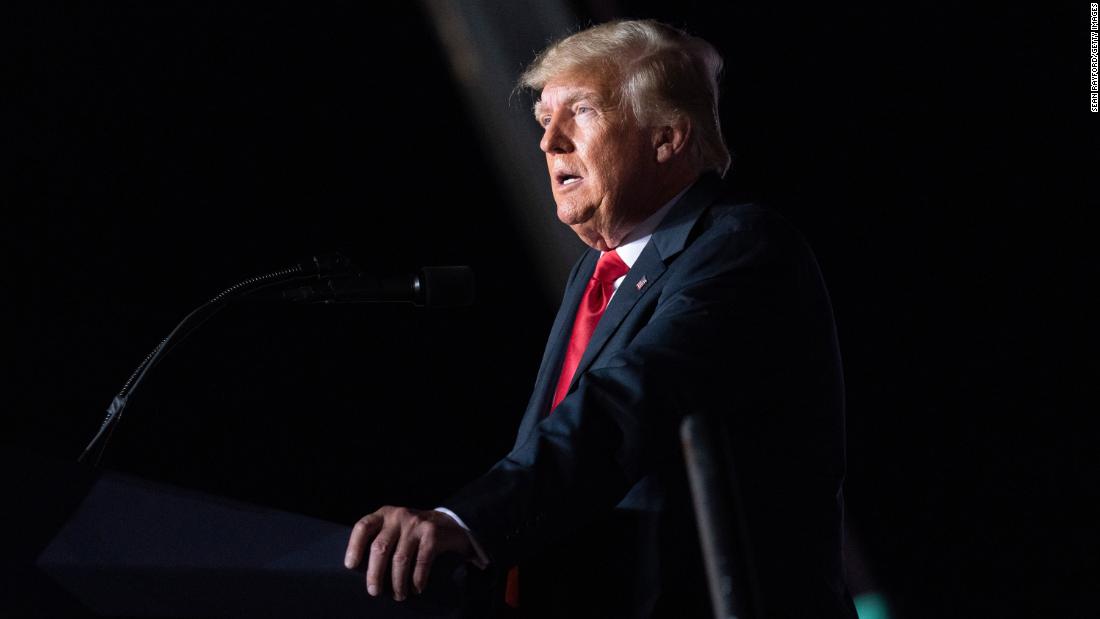What is executive privilege? Does a former president still get it?
Can a former president claim the protection for an informal aide? The law may not be on their side. Time probably is.
January 6 investigators have promised to seek criminal charges against Bannon when he blows past a deadline to comply with a congressional subpoena. Several other former advisers, including Dan Scavino and former White House chief of staff Mark Meadows, have also been the subject of subpoenas for information related to the insurrection.
What is executive privilege?
Presidents have been fighting with Congress for all of US history about the concept of executive privilege.
The executive in question is the president and the privilege is his or her right to get honest advice in private and protect it from Congress and the courts. The term “executive privilege” dates back to the Eisenhower administration, but fights over the separation of powers have been going on for centuries in the US.
The idea is that presidents can shield their aides from having to share internal communications with Congress when it is conducting oversight, as the Constitution suggests it must.
There’s a natural tension there — the official duties of one branch of government conflicting with the official duties of another.
The danger, of course, is that this honest protection could be used to hide illegal or improper behavior.
Post-presidential privilege?
Trump wants to carry that protection with him out of office and stretch it to cover people like Bannon, who had no official capacity.
It’s an odd twist in a debate that’s touched every single president, including Republicans and Democrats.
George W. Bush invoked executive privilege to shield his aides from accountability for the mass firing of US attorneys.
The ultimate test of privilege came when the Supreme Court rejected Richard Nixon’s argument that he could keep recordings of his Oval Office conversations from a special prosecutor.
When questions of executive privilege are taken up in the courts, they take forever. Cases involving both Obama and Bush were not resolved until they were out of office.
Eggleston cites Supreme Court cases from the Nixon era to argue it’s actually President Joe Biden who should decide if Trump gets privilege now that he’s out of office.
“Under our system, the authority attaches to the office, not the human,” Eggleston told Harvard Law Today.
Trump’s White House had an expansive but inconsistent view of privilege
But then, as impeachment approached, many White House aides refused to cooperate with House investigators. They simply ignored subpoenas and refused to testify or turn over documents. This lack of cooperation became the basis for one of the articles of impeachment, but Democrats, who were in a hurry at the time, didn’t pursue the subpoenas in court.
Other witnesses — the ones you saw testify against Trump — ignored Trump and cooperated with investigators. He was impeached in the House, but Republicans in the Senate voted against convicting him.
A history of privilege
Questions of privilege for presidents date back to George Washington, who didn’t want to tell Congress exactly how the Jay Treaty with Britain was negotiated.
When President Thomas Jefferson argued in 1807 that he didn’t have to fully comply with a subpoena for documents, he was having his former vice president tried for treason for attempting to incite a revolution out West. The former-vice-president-turned-frontier-revolutionary on trial was Aaron Burr, of ‘Hamilton’ dueling fame. The Supreme Court, in the voice of Jefferson’s foil Chief Justice John Marshall, disagreed with the President’s argument, Jefferson ultimately coughed up the documents Burr wanted for his defense and Burr ultimately walked free.
Richard Nixon worried he weakened executive privilege with his repeated attempts to invoke it. But Trump supercharged the concept of privilege with wild and blanket assertions that continue even after he’s left office and to cover people like Bannon with no official capacity.
Biden rejects Trump’s privilege claim
Presidents usually try to help each other out on executive privilege and defend each other’s claims after they’ve left office.
Trump could go to court to keep the documents sealed.
These cases often take years and Trump probably won’t have to wait that long. If Republicans take control of the House or Senate after the 2022 midterms — and history suggests they will — all of the January 6 inquiries will almost surely go away.
![]()


